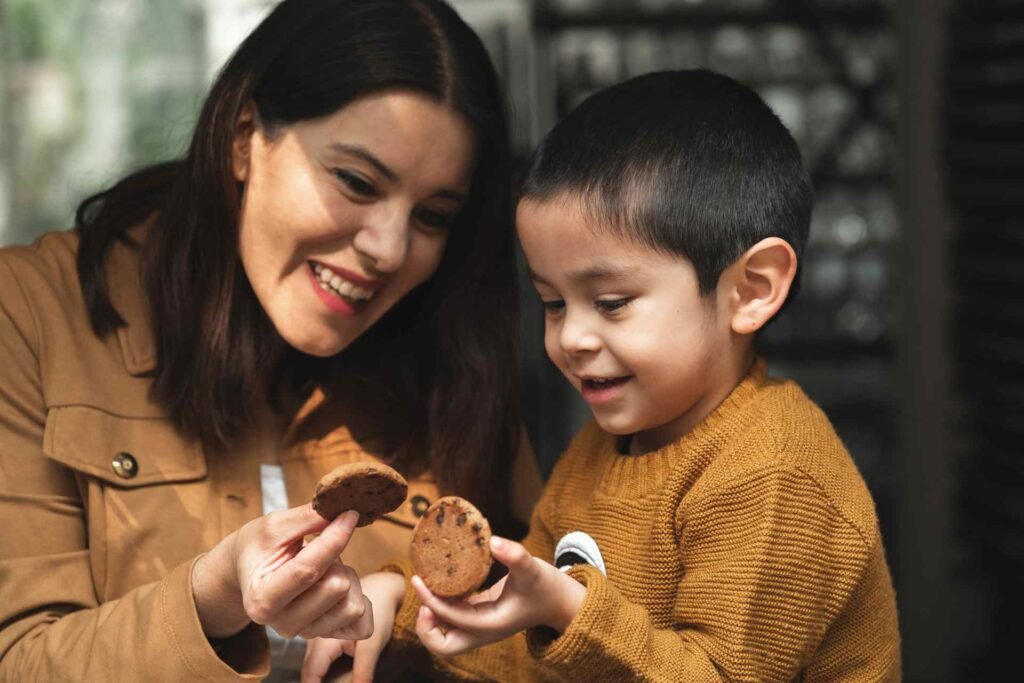Before kids even enter a school, they start learning right at home. Why is this so important?
Because it’s here that significant life values, like respect and self-control, begin. This is why home is the first school for every child.
The Home plays a huge role in guiding kids. If we miss out on this, other influences, some not so good, might take over.
So, the Home isn’t just where we live; it’s where real learning starts. As mentioned in Counsels to Parents, Teachers, and Students, 107, home education has a quiet but strong impact.
Character Building
Every parent has a big job: shaping their child’s heart, mind, and spirit. What’s the goal? A well-rounded person.
But this is a challenging task. It takes time, thought, and honest effort. It’s like building something: you start with a strong base and then add to it.
With that strong start, you can then focus on the details. Counsels to Parents, Teachers, and Students, 107, 108, backs this up, saying it’s all about starting right.

Start With the ‘Why’ of Home Education
When we think of education, our minds often drift to schools, teachers, and textbooks. But let’s step back and ask ourselves the fundamental question: Why?
Why is education important, and where does it truly begin?
The answer is closer than we think: our homes. Before a child ever steps into a classroom, they’re learning at Home. But it’s not just about facts and figures; it’s about values like kindness, patience, and understanding.
Manuscript 102, 1903 emphasizes this, suggesting that the journey we start at Home isn’t just for our time on earth but extends far beyond.
The Bigger Picture of Home Learning
Consider Abraham. His Home wasn’t just a place to eat and sleep; it was a learning hub where values were lived and breathed.
This isn’t a story from the past; it’s a lesson for today. Every Home has the potential to be a beacon of learning, shaping young minds not just for the challenges of today but for the promises of tomorrow.
The Role of Stories and Symbols
The Hebrews had a unique approach to education. They intertwined stories of faith and symbols into daily life, making learning a lived experience.
This wasn’t just about imparting knowledge; it was about embedding values. As the Fundamentals of Christian Education 95 points out, this deep-rooted approach ensured lessons weren’t just heard but felt and lived.

Home: The First Step in Education
Before formal education comes the informal yet profound lessons from Home; it’s the foundation, the starting point. As The Review and Herald, June 13, 1882, suggests, when this foundation is strong, the transition to formal learning becomes seamless.
Character Building Begins at Home
A home is more than a physical space; it’s a character-building zone. It’s where values are taught and demonstrated, shaping individuals ready to face the world outside. Manuscript 136, 1898 touches on this, highlighting the transformative power of a value-driven home.
Lessons from Nazareth
Even Jesus, a figure central to many, began his learning journey at Home. His lessons weren’t confined to scriptures; they were lived experiences, blending the divine with the daily.
To the youth, as you stand at the crossroads of life’s journey, remember the profound impact of home education. It’s not just about the ‘what’ or the ‘how,’ but the ‘why.’ And as you move forward, let the foundational lessons from Home guide your path, reminding you of the deeper purpose and the bigger picture.
Discovering the ‘Why’ Behind Home Values
Your First Teachers
Think back to your earliest memories. Before you ever set foot in a school, your first lessons came from Home. Your parents weren’t just caregivers; they were your first teachers. This isn’t a mere role; it’s a foundational responsibility.
The world outside is filled with challenges and temptations. If they needed to set the proper foundation, who would? The stakes are high. It’s not just about teaching you to tie your shoelaces or say ‘please’ and ‘thank you.’ It’s about instilling values that will guide you throughout your life.
Proverbs 22:6 says, “Train up a child in the way he should go; even when he is old, he will not depart from it.”
The Blueprint of Character Building
Building character is like constructing a building. It starts with a solid foundation and every brick matters – much like every individual builds the church.
Your parents were the architects, and every decision they made every lesson they taught, contributes to who you are today.
It’s a task that demands more than love; it requires wisdom, patience, and a clear vision. Ephesians 6:4 reminds us, “Fathers, do not provoke your children to anger, but bring them up in the discipline and instruction of the Lord.”

The Power of Home Education
Think about figures like Abraham. His Home wasn’t just a shelter; it was a center of learning, a place where values were lived and breathed. Every Home, including yours, has the potential to be this beacon of knowledge, shaping not just for the challenges of today but for the promises of tomorrow.
The Essence of Teaching at Home
Teaching isn’t just about imparting knowledge; it’s about embedding values. It’s about making sure that when you step out into the world, you’re equipped not just with knowledge but with a moral compass.
And this teaching starts at Home. Your parents played a pivotal role. Your Home was the first school, and the lessons learned there will echo throughout your life.
The Need for Unity in Teaching
For effective learning, unity is vital. Your parents needed to be on the same page, presenting a united front. Differences should be settled away from the child’s eyes, ensuring a stable, harmonious environment for growth.
The Broader Perspective of Education
Education is more than just books and grades. It’s about shaping a worldview, instilling values, and preparing for life’s challenges. And this broader perspective started at Home, with your parents as the primary educators.
The Call to Reflect
As you look ahead to your future, perhaps becoming parents yourself one day, it’s time to pause and reflect. Are you carrying forward the values you were taught?
Remember, your role will not just be to raise children but to shape future adults. It’s a responsibility, a calling, and perhaps the most important job you’ll ever have.
So, ask yourself: What’s your ‘why’?
Why do you believe what you believe, and how can you carry it forward?
Deuteronomy 6:6-7 says, “And these words that I command you today shall be on your heart. You shall teach them diligently to your children and shall talk of them when you sit in your house, and when you walk by the way, and when you lie down, and when you rise.”

Discovering Your ‘Why’ in Early Learning
The Real Beginning of Your Journey
When you think about education, you might picture classrooms, textbooks, and graduation ceremonies. But let’s start with a simple truth: your education began long before you entered a classroom.
It started when you were a baby, absorbing the world around you. It wasn’t just about learning words or taking your first steps; it was about the values and principles instilled in you.
As highlighted in Good Health, July 1880 par. 12. The foundation of your learning journey was laid in those early moments.
Every Phase Matters
School is just one chapter in your educational story. The actual narrative began at Home, from the moment you began to perceive the world.
From infancy to now, every interaction, every lesson, every experience has shaped you. Here’s a study investigating the relationship between socioeconomic status (SES) and infant vocabulary size. It finds that shared book reading may narrow the effects of socioeconomic disparities on early language development.
As The Review and Herald, June 27, 1899, points out, your education started the moment you began to form ideas.
The Power of Early Experiences
Your mind, especially in your younger years, was like a sponge, soaking up everything. The lessons you learned and the values you adopted have played a significant role in who you are today.
As mentioned in Letter 1, 1877, those early years were when your mind was most open to influence.
A Two-Way Street
Education isn’t a one-way process. While you were learning, those around you—especially your parents—were learning too. They learned from your questions, your curiosities, and your challenges. As Pacific Health Journal, May 1890 suggests, the lessons learned during those formative years can be transformative for everyone involved.
The Importance of Foundations and why home is the first school.
Every journey begins with a single step. The values, principles, and lessons you were introduced to in your early years laid the foundation for your future. As emphasized in Manuscript 126, 1897, starting on the right foot is crucial.
Nature’s Lesson to Us All
Nature offers us a profound lesson on growth. As a seed transforms into a plant, you’ve grown, developed, and evolved. This growth is a continuous journey, with each phase holding its significance. The parable in Mark 4:28 beautifully illustrates this essence of development and evolution.
In wrapping up, for all young individuals, it’s essential to recognize and appreciate the early influences that have shaped you. Your Home, family, and early experiences have played a pivotal role in your development.
As you move forward, understanding these foundational influences can offer valuable insights into your purpose and direction.
Remember, it’s not just about where you’re going but understanding where you’ve come from.


